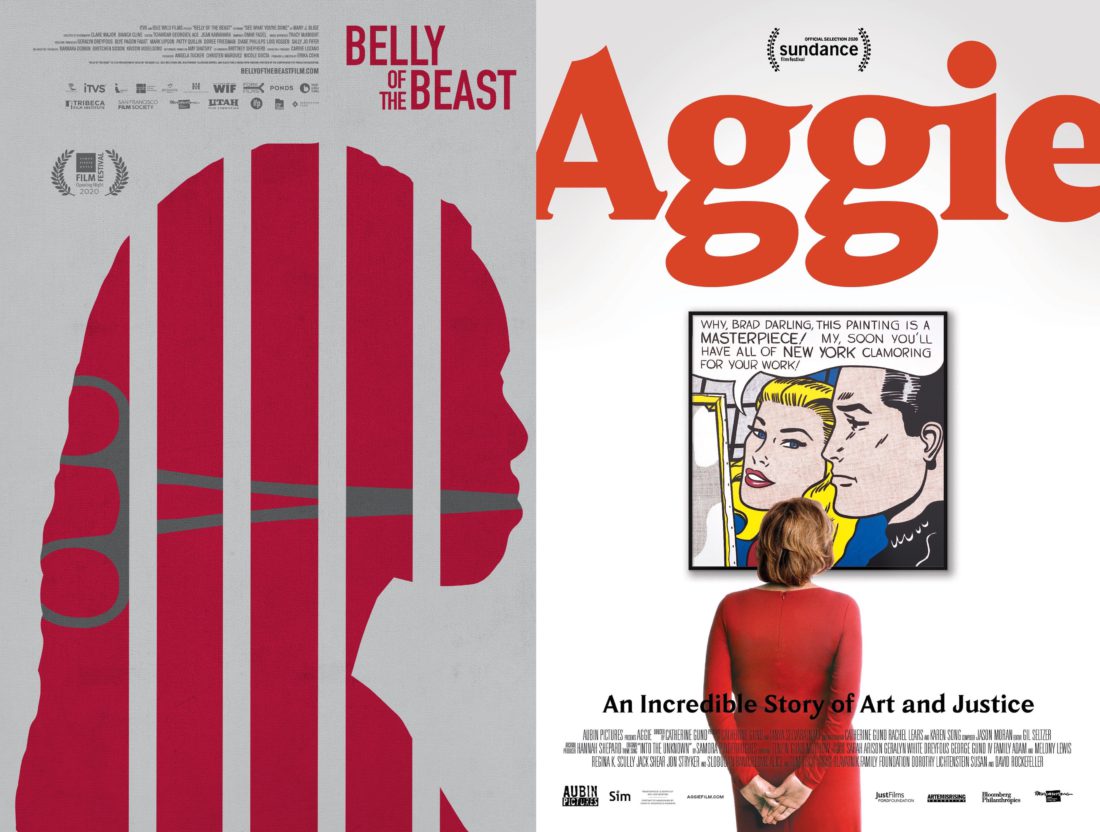“Without empathy, there can be no justice,” says one of the art world luminaries interviewed in the documentary Aggie, speaking about arts patron and social activist Agnes Gund. They’re wise words for these times, and the crux of both Aggie and another new documentary, Belly of the Beast, about the legal battle to stop forced sterilizations of incarcerated women.
The two films are set worlds apart — one in New York society circles and the other in the California state prison system — but they intersect at a vital point of empathy. In each, a white woman, moved by compassion, puts her privilege to work to help people in prison. Gund, 81, the former president of the world-class Museum of Modern Art, sold a precious masterpiece by Roy Lichtenstein for $165 million in 2017 in order to set up a fund to support criminal justice reform, while Cynthia Chandler, a young lawyer, co-founded Justice Now to give imprisoned women legal recourse to improve their lives.
Aggie begins and ends with Gund’s bequest, but in between it’s a whirlwind tour of the contemporary art world, in which Gund used her considerable inherited wealth to support both living artists and MoMA. Along the way, she also became an early AIDS activist and funded an ongoing art-in-schools program, one of the many causes to which she contributed. The documentary is directed by her daughter, Catherine Gund, who placed her reticent mother in conversations with more than 20 art-world figures — from obscure painters to filmmaker John Waters — to try to draw out her philosophy and recollections amidst a parade of eccentric personalities.
As the movie shifts from topic to topic, it offers glimpses of hundreds of (mostly) modern artworks, largely unidentified — an intriguing tease, like an exhibition catalog without captions. Mostly, it’s a remarkable portrait of a humble, determined woman whose entire life has demonstrated the endless good that can be harvested from a rich father’s millions.
In contrast, the central figure in Belly of the Beast is Kelli Dillon, a young woman of color incarcerated for killing her abusive husband, then sterilized against her will during a medical procedure. It’s an awful story sympathetically told, followed by her long quest for justice, which leads her to attorney Chandler. Director Erika Cohn is an adept filmmaker who gradually brings in other women with similar stories. The film is both horrifying and uplifting — an appropriate combination for the cultural moment.
Available to rent via grailmoviehouse.com (both films) and fineartstheatre.com (Belly of the Beast).



Before you comment
The comments section is here to provide a platform for civil dialogue on the issues we face together as a local community. Xpress is committed to offering this platform for all voices, but when the tone of the discussion gets nasty or strays off topic, we believe many people choose not to participate. Xpress editors are determined to moderate comments to ensure a constructive interchange is maintained. All comments judged not to be in keeping with the spirit of civil discourse will be removed and repeat violators will be banned. See here for our terms of service. Thank you for being part of this effort to promote respectful discussion.